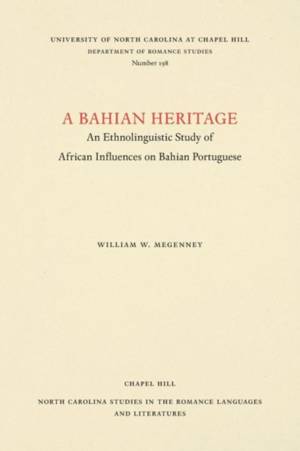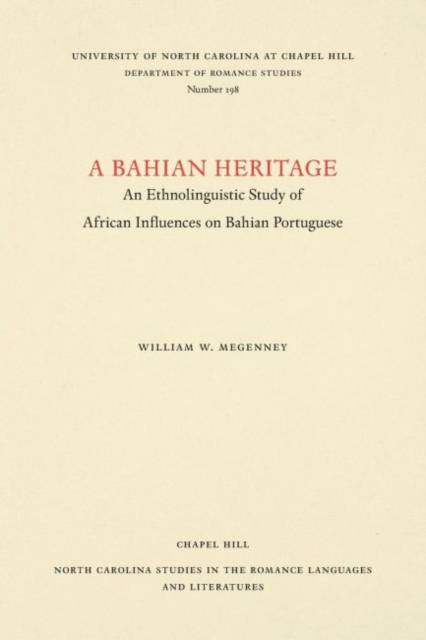
- Afhalen na 1 uur in een winkel met voorraad
- Gratis thuislevering in België vanaf € 30
- Ruim aanbod met 7 miljoen producten
- Afhalen na 1 uur in een winkel met voorraad
- Gratis thuislevering in België vanaf € 30
- Ruim aanbod met 7 miljoen producten
Zoeken
A Bahian Heritage
An Ethnolinguistic Study of African Influences on Bahian Portuguese
William W Megenney
€ 45,95
+ 91 punten
Omschrijving
In this impactful addition to the field of ethnolinguistics, Willian W. Megenney dissects the influence of African languages and cultures on contemporary Bahian Portuguese. The author aims at studying the connection between the use of Africanisms and socio-economic class. Megenney interrogates a broad swath of claims concerning potential syntactic, morphological, and phonemic influences in the field, giving sound analysis and drawing the conclusion that, with the potential exception of a causal correlation between the musical intonation in areas of high population density of people of African descent and the tonality of some of the studied languages, the only aspect that is incontrovertibly influenced is vocabulary, though direct source-traces prove problematic at best. Megenney's primary study of the interrelation of socio-economic class and the use of Africanisms, and the circumstances that allowed for the survival of such Africanisms in Brazil, is an intriguing read for any scholar of ethnolinguistics, as well as an excellent resource for researchers working in the Lusophone world.
Specificaties
Betrokkenen
- Auteur(s):
- Uitgeverij:
Inhoud
- Aantal bladzijden:
- 232
- Taal:
- Engels
- Reeks:
Eigenschappen
- Productcode (EAN):
- 9780807891988
- Verschijningsdatum:
- 1/01/1978
- Uitvoering:
- Paperback
- Formaat:
- Trade paperback (VS)
- Afmetingen:
- 152 mm x 229 mm
- Gewicht:
- 349 g

Alleen bij Standaard Boekhandel
+ 91 punten op je klantenkaart van Standaard Boekhandel
Beoordelingen
We publiceren alleen reviews die voldoen aan de voorwaarden voor reviews. Bekijk onze voorwaarden voor reviews.








